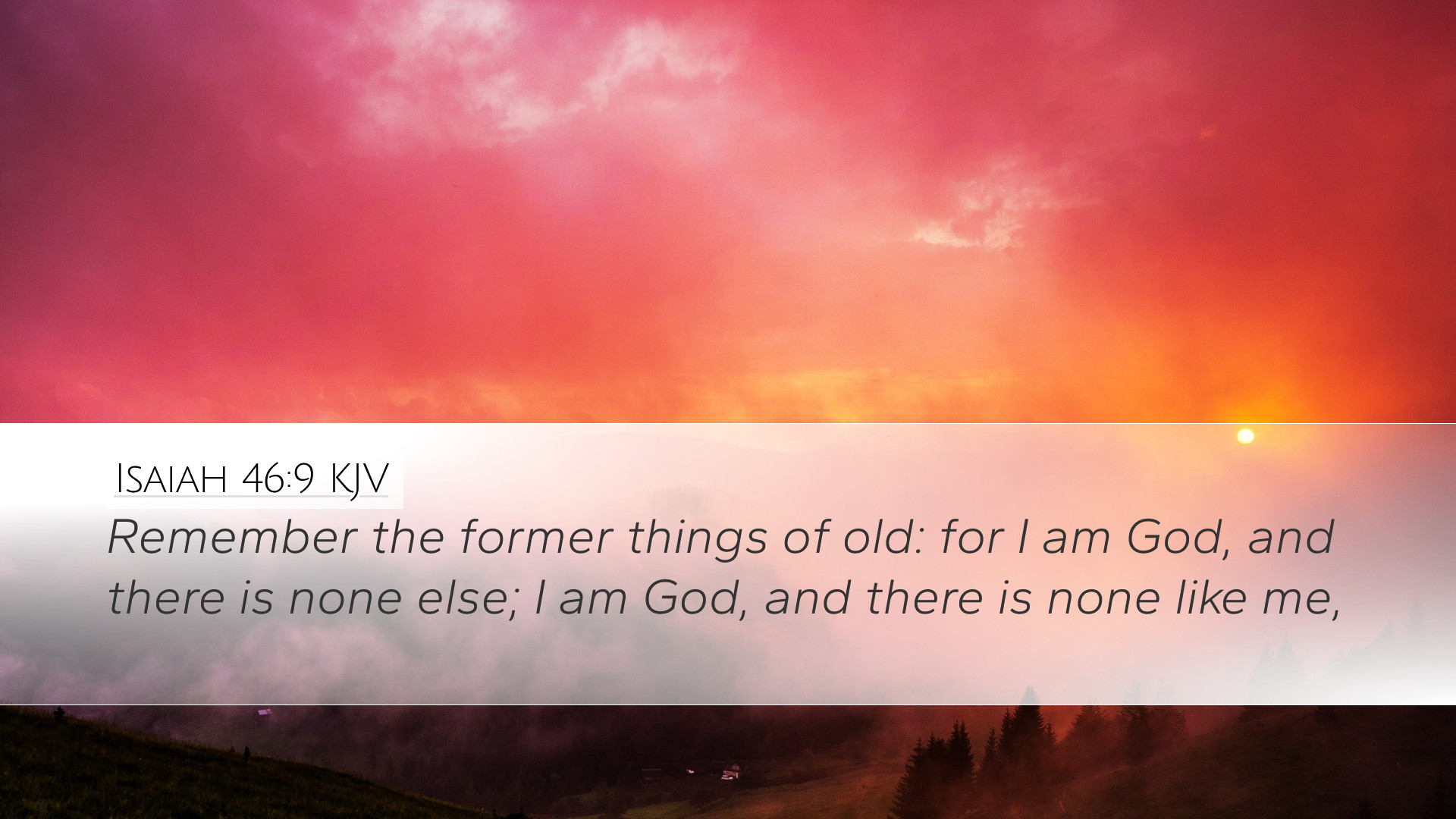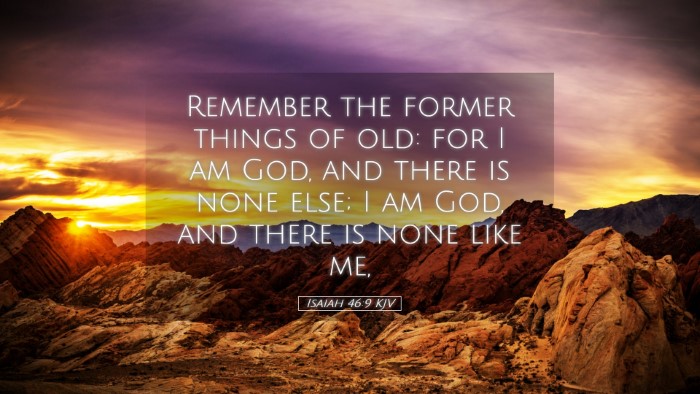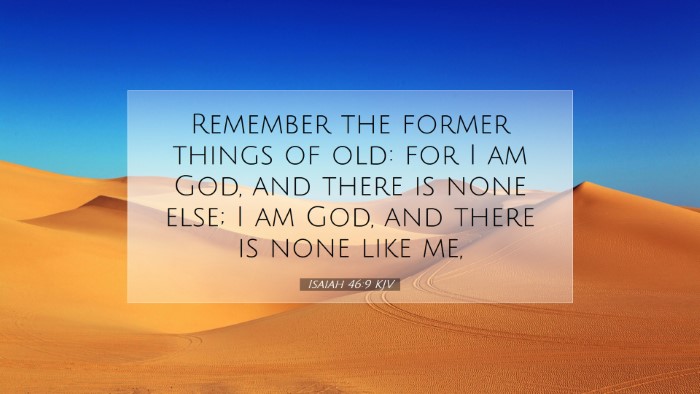Isaiah 46:9 Commentary
Verse: "Remember the former things of old: for I am God, and there is none else; I am God, and there is none like me." (Isaiah 46:9)
Introduction
The profound declaration in Isaiah 46:9 serves as an invitation for the reader to reflect upon God's unique nature and his historical acts. This verse functions as a reminder of God’s sovereignty over all creation and emphasizes the uniqueness of the Divine. The insights derived from the commentaries of Matthew Henry, Albert Barnes, and Adam Clarke shed light on its theological implications and practical applications for believers today.
Theological Significance
The phrase "I am God, and there is none else" is a powerful affirmation of God’s singularity. As Matthew Henry observes, this statement serves to distinguish the true God from the idols of the nations, which the people of Israel frequently turned to in their disobedience. Gods made of wood and stone lack the ability to know or care for their followers, while the God of Israel is characterized by knowledge and greatness.
Albert Barnes remarks on the importance of remembering the "former things." This reflects not only a call to recall God's past covenants and deliverances but also his enduring faithfulness across generations. By remembering, believers are encouraged to anchor their faith in the historical acts of God, reinforcing their understanding of his character as consistent and trustworthy.
Historical Context
The context of Isaiah 46 reveals God’s message to a nation experiencing exile and spiritual decline. According to Adam Clarke, these verses are addressed to the Israelites, who were vulnerable to despair and hopelessness. The pronouncement serves both as comfort and as a challenge, encouraging the people to reflect on God's past savior-ship and how he has consistently intervened in human history.
Comparative Analysis of God's Uniqueness
The declaration "there is none like me" underscores the idea of God’s uniqueness, and this theme is prevalent throughout Scripture. Matthew Henry emphasizes that God’s attributes—such as omnipotence, omniscience, and immutability—set Him apart from all creation. In comparison, idols are lifeless and powerless, unable to offer true hope or salvation.
- Omnipotence: God's power is unrivaled, capable of both creation and salvation.
- Omniscience: God possesses complete knowledge of all things, past and future.
- Immutability: God does not change; His promises and nature remain constant.
Encouragement for Today
For pastors, students, and theologians today, the implications of Isaiah 46:9 are manifold. The call to remember the past can be seen as an encouragement amidst contemporary struggles. Albert Barnes notes that believers today are similarly challenged to remember how God has provided and sustained them through trials, which cultivates trust and hope for future events.
Believers are invited into the narrative of God’s faithfulness, paralleling it with their personal experiences. Adam Clarke suggests that such reflection fosters greater reliance on God's providence and sovereignty, reminding us to turn to Him during life’s uncertainties.
Practical Applications
To apply the teachings of Isaiah 46:9, the following practical applications arise:
- Personal Reflection: Take time to meditate on past experiences where God has intervened in one’s life. Journaling these reflections can help solidify faith and understanding of God’s nature.
- Teaching and Preaching: Pastors should incorporate testimonies of God’s faithfulness in their sermons, helping congregants to see the active role of God in history and in their own lives.
- Community Remembrance: Churches can create opportunities for congregations to share stories of God’s work among them, building a culture of remembrance and testimony.
Conclusion
Isaiah 46:9 stands as a profound reminder of the character of God and his actions throughout history. In a world filled with uncertainty, believers are encouraged to remember the "former things" to foster faith in the present and future. The insights derived from the works of Matthew Henry, Albert Barnes, and Adam Clarke provide a rich backdrop for understanding this verse deeply, urging all who read it to reflect on the nature and work of the one true God—who is indeed, unlike any other.


